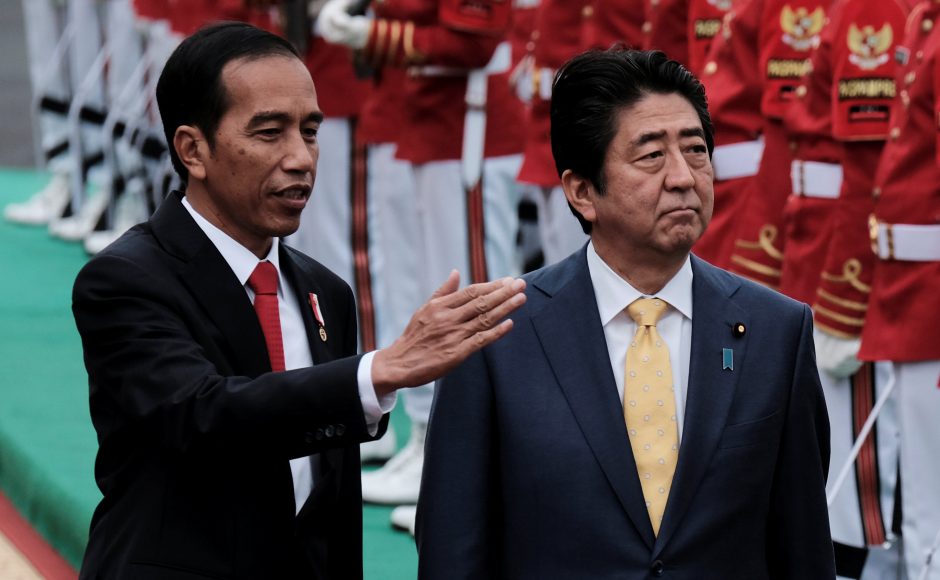Jakarta – Indonesian President Joko Widodo and Japanese Prime Minister Shinzo Abe reaffirmed on Sunday their commitment to cooperate on maritime security and deepen defense ties, as both nations feud with China over sea territory.
Abe said during a joint press statement that their two island nations gave maritime cooperation the “highest priority”.
“Japan will actively encourage cooperation on maritime security and encourage the development of the remote islands of Indonesia,” he said at the presidential palace in Bogor.
Last month Tokyo and Jakarta unveiled an agreement aimed in part at strengthening Indonesia’s ability to defend its vast marine borders, according to AFP.
Indonesia has no argument with China over ownership of reefs or islets in the disputed South China Sea.
However, Beijing’s expansive claims overlap with Indonesia’s exclusive economic zone — waters where a state has the right to exploit resources — around the Natuna islands.
Indonesia has vowed to protect its sovereignty from intrusions by fishing vessels, and has blown up foreign boats in a show of force, including some from China.
Japan, which has a territorial row with China over disputed islands in the East China Sea, has worked to strengthen ties with members of the Association of Southeast Asian Nations such as Indonesia.
The defense and foreign ministers of Japan and Indonesia will meet this year to discuss deepening “cooperation in the fields of defense and security”, Abe added.
Widodo said Japanese investment in Indonesia had nearly doubled from 2015 to almost $5 billion last year.
The two leaders discussed opportunities centered on large infrastructure projects including a medium-speed rail line and key port.
Widodo is trying to spur growth in Southeast Asia’s largest economy by increasing infrastructure spending, particularly on the country’s creaking roads, ports and railways.
Japan has won bids to construct Indonesia’s largest coal-fired power plant and a mass rapid transit system for Jakarta, but it lost a lucrative contract to China to build the country’s first high-speed rail network.
